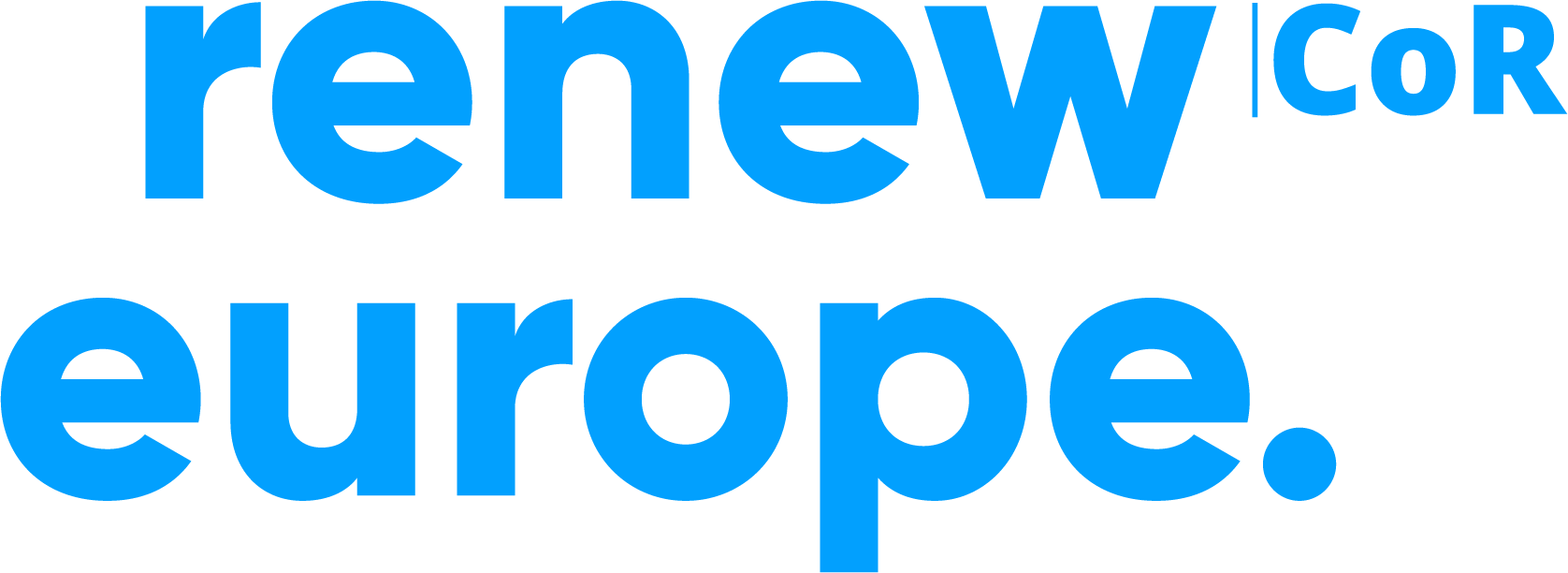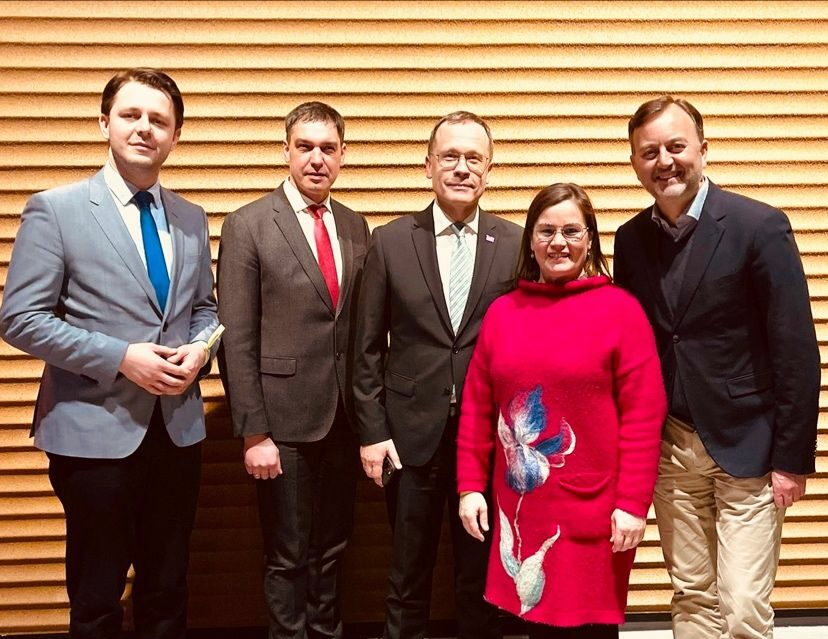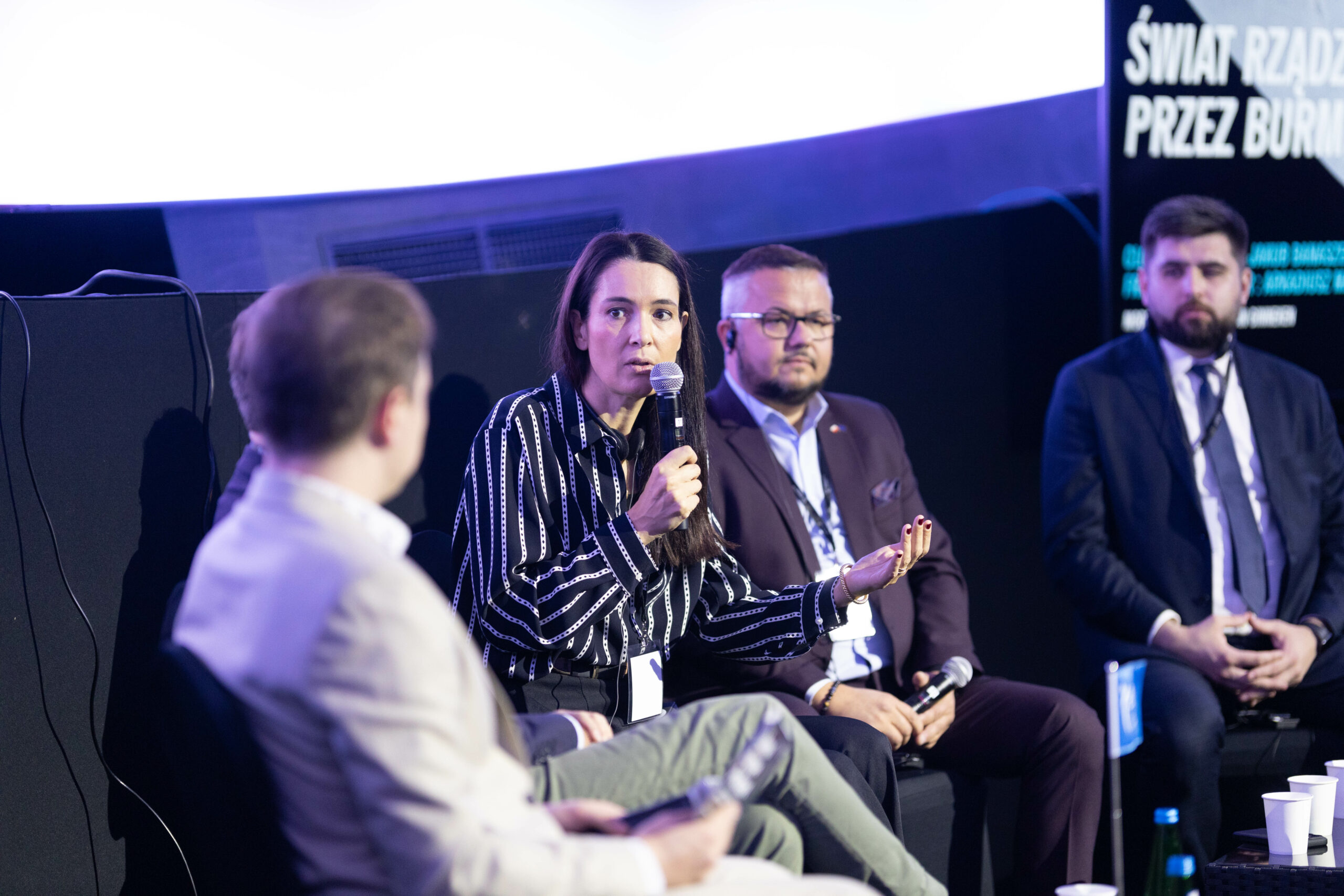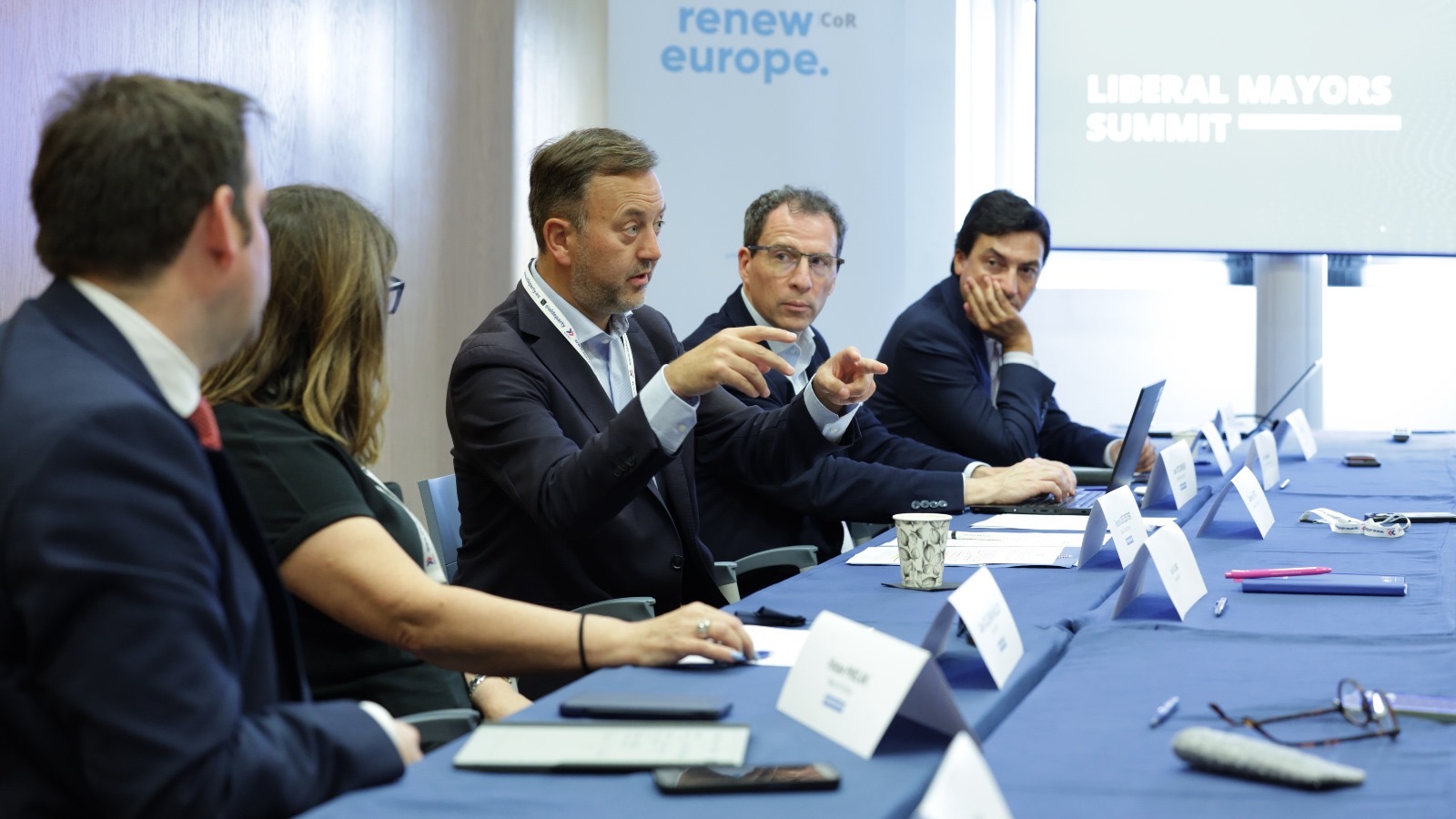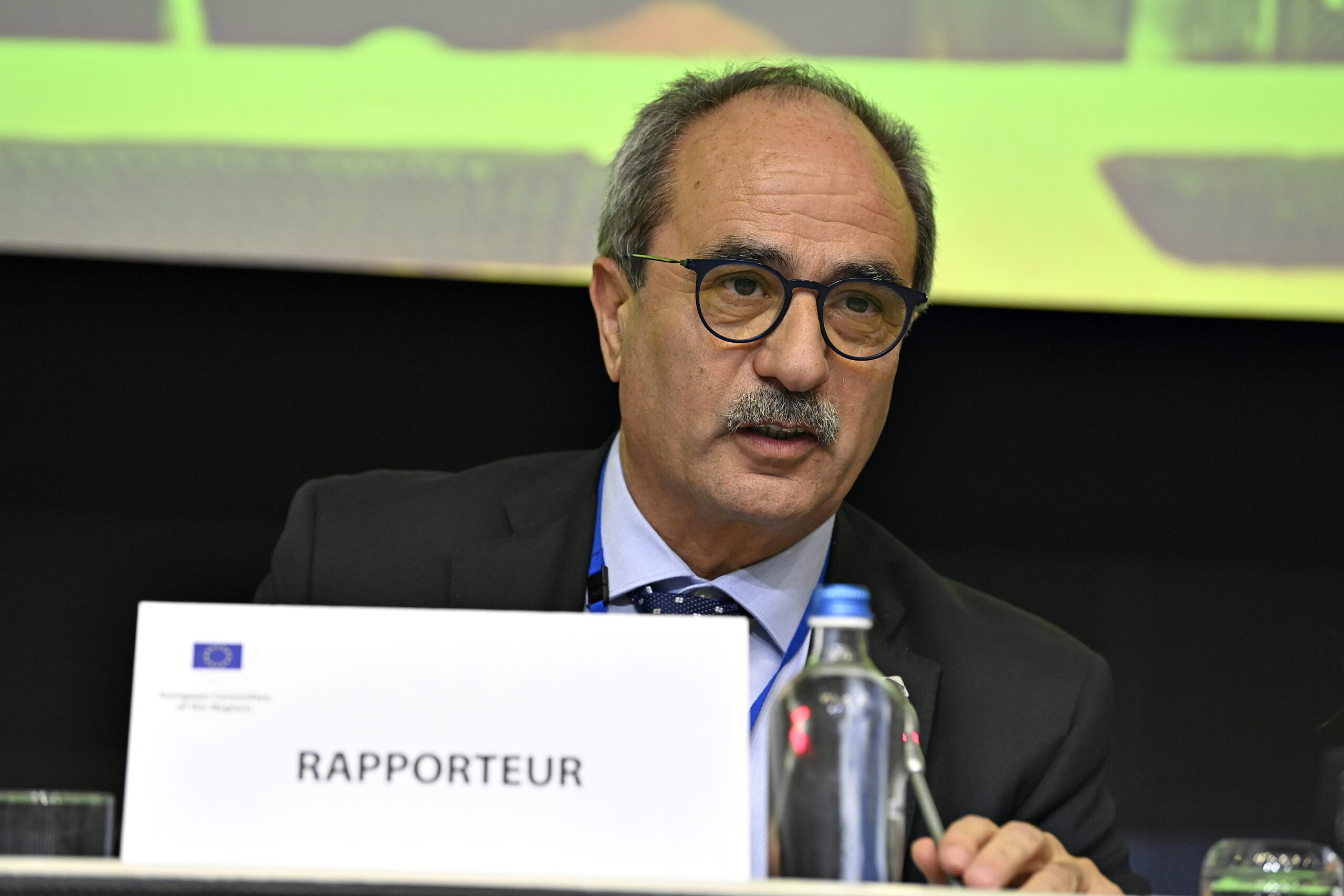On 26 January 2024, a delegation of CoR members (Mirja Vehkapera, Chairwoman of the Board of Oulu, Finland – European Capital of Culture 2026; Gunars Ansins, Mayor of Liepaja, Latvia – European Capital of Culture 2027; Francois Decoster, Mayor of St Omer, France – in charge of Culture as Vice-President of his region of Hauts-de-France and Group President) and Ruben Latcau, Vice-Mayor of Timisoara, Romania – European Capital of Culture 2023 travelled to Tartu, Estonia for its launch of the 2024 European Capital of Culture under the slogan “Arts of Survival”, organised by the Mayor and CoR member, Urmas Klaas.
Liberals are working together to connect citizens with Europe in their local communities. In Tartu, Estonia several liberal leaders whose cities have been, are or will be European Capitals of Culture (ECoC) met to exchange knowledge and know-how on the organization and impact of a European Capital of Culture. Urmas Klaas, CoR member and Mayor of Tartu, Estonia, which currently holds the title of European Capital of Culture 2024, met with Ruben Latcau, vice-mayor of Timisoara, Romania, which was the European Capital of Culture in 2023, as well as with CoR member Mirja Vehkapera, Mayor of Oulu, Finland, which will be the European Capital of Culture in 2026 and CoR member Gunars Ansins, Mayor of Liepaja, Latvia, European Capital of Culture in 2027. Throughout the year, over 300 events will be organised in Tartu to present the story of the “Arts of Survival” – a slogan chosen to demonstrate the knowledge, skills, and values that will help Tartu lead a good life in the future. Inspired by culture, the Mayor of Tartu aims to build a better tomorrow, and use ECoC as a great cultural celebration that draws visitors from Estonia and abroad, while including as many people as possible in the long-term change in Tartu and Southern Estonia. Driven by passion for their cities and its citizens, the liberal leaders discussed new ways to work together and to build ties between cities across the Union through the promotion of ECoCs.
As liberals prepare to inaugurate European Capitals of Culture in the next few consecutive years, they face enormous geopolitical, political, budgetary and personal challenges. It is their drive to transform their city and its local community and keep it thriving that allows them to champion the initiative, putting Europe at the heart of every citizen. For Tartu, there were four main aspects that were prioritized in preparation of the European Capital of Culture: the uniqueness, sustainability, awareness, and co-creation that Tartu has to offer. As a culturally minded international city, the Mayor aims to use the events to establish new ties with the wider world and raise awareness of Tartu abroad. In order to ensure inclusivity and sustainability, the programme is environmentally-friendly and accessible to people with different needs. To be fit for the future, technology plays another key element, that aims to attract young people and entrepreneurs. Finally, the events have been designed as cross-generational, aiming to strengthen ties between all of a society. The city of Tartu has also set out 5 goals towards a sustainable future, which it aims to achieve through the ECoC initiative, such as improved waste collection, better food waste management, and the use of cleaner energy. It is principles like these that make Tartu a liberal European Capital of Culture.
This visit was part of a bigger liberal initiative of our Group to work together and connect citizens with Europe through European Capitals of Culture. Last year our Group President, Francois Decoster, travelled to Timisoara, Romania for the launch of their 2023 European Capital of Culture, and discussed with the Mayor and member of our Liberal Mayors Network, Dominic Fritz, how culture can play an important role in municipalities, to which the Mayor of Timisoara said: “Prosperity without innovation does not exist, innovation without diversity does not exist, diversity without respect does not exist, respect without culture does not exist. (…) Our mission is never to be cynical. Never to discourage. But always to build, to grow confidence.” In 2025, the liberal city of Nova Gorica in Slovenia will become the next European Capital of Culture, followed by Oulu, Finland in 2026 and Liepaja, Latvia in 2027.
The European Capital of Culture (ECoC) is an initiative, which uses culture as a tool to regenerate European cities, boost entrepreneurship and tourism, and promote creativity in all its forms, and with EU support provides a yearlong celebration of art and culture, and creates a long-lasting legacy for the city. Through various activities, such as festivals, exhibitions and workshops, cities around Europe designated as European Capitals of Culture highlight the richness and diversity of their culture, while fostering a European spirit. The initiative increases European citizens’ sense of belonging to a common cultural area, while developing the local culture of a city, and the city itself.
To find out more about the European Capital of Culture, visit this website.
To find out more about Tartu – the European Capital of Culture 2024, visit this website.
